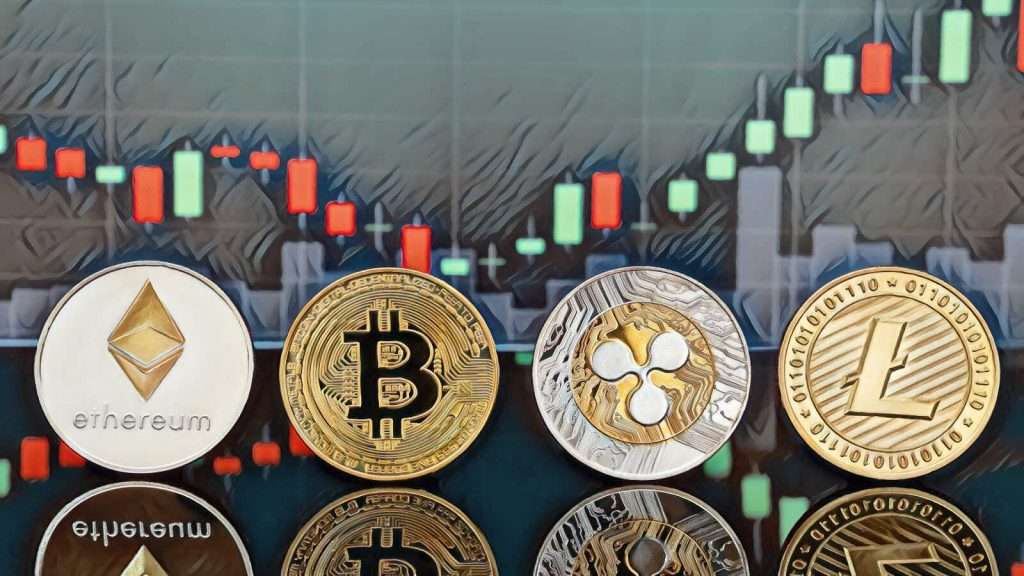ALTCOIN EXCHANGE FEES: Altcoins are any cryptocurrency that is not Bitcoin. The term “altcoin” stands for “alternative coin”. In the early days of cryptocurrency, Bitcoin was the only digital currency, but as time passed, new cryptocurrencies emerged, each with its unique features and advantages. Altcoins were created to offer an alternative to Bitcoin, and they can be used for various purposes, including payments, investment, and as a store of value.
ALTCOIN EXCHANGE FEES
Some of the popular altcoins include Ethereum (ETH), Ripple (XRP), Litecoin (LTC), Bitcoin Cash (BCH), and many others. Each altcoin has its unique use case and market value, and their prices are determined by market demand and supply.
As the popularity of cryptocurrencies continues to grow, so does the demand for trading them on exchanges that offer various altcoins. However, trading on these exchanges often comes with fees that can add up quickly, eating into your profits. In this article, we’ll explore altcoin exchange fees, how they work, and some tips on how to minimize them.
Understanding Altcoin Exchange Fees
Altcoin exchanges are online platforms that allow users to trade altcoins. These exchanges offer various services, including buying and selling altcoins, storing digital assets, and trading one cryptocurrency for another. However, like other financial institutions, these exchanges charge fees for their services, which can significantly impact the profitability of altcoin trading. Altcoin exchange fees are the charges imposed by exchanges for executing trades on their platforms. These fees vary from exchange to exchange and can be structured in several ways.
→ Maker-Taker Fee Model
The most common fee structure is the maker-taker model. In this model, makers are those who provide liquidity to the exchange by placing limit orders that go into the order book. Takers, on the other hand, are those who remove liquidity from the exchange by placing market orders that are filled immediately.
The exchange charges a higher fee for takers than makers since takers are taking advantage of the liquidity provided by the makers. The taker fee is usually between 0.1% to 0.5%, while the maker fee is usually around 0.1% or less.
→ Flat Fee Model
Another fee structure used by some altcoin exchanges is the flat fee model. In this model, the exchange charges a fixed fee for every trade executed on their platform, regardless of whether the trade is a market or limit order. The flat fee can range from a few cents to several dollars per trade.
→ Percentage Fee Model
The percentage fee model charges a percentage of the total value of the trade. For example, an exchange may charge a fee of 1% of the trade value for every trade executed on their platform. This fee model can be disadvantageous for traders executing large trades since the fees can add up quickly.
How to Minimize Altcoin Exchange Fees
To minimize fees, it is important to research various factors that contribute to feeds and compare the fee structures of various exchanges.
→ Choose the Right Exchange
One of the best ways to minimize altcoin exchange fees is to choose the right exchange. Some exchanges have higher fees than others, and some offer discounts for high-volume traders. Do your research and compare the fees of different exchanges before choosing one.
Use Limit Orders
Limit orders allow you to set the price at which you want to buy or sell an altcoin. By using limit orders, you become a maker on the exchange, which means you pay a lower fee than takers. Using limit orders also helps you avoid paying the spread, which is the difference between the bid and ask prices.
→ Use Exchange Tokens
Some altcoin exchanges offer their own tokens that can be used to pay trading fees. By using these tokens, you can often get a discount on the fees charged by the exchange. However, make sure to check the terms and conditions of using these tokens, as some exchanges have restrictions on their use.
→ Trade in Larger Volumes
Many altcoin exchanges offer volume-based discounts on trading fees. The more you trade, the lower the fee you pay per trade. If you’re a high-volume trader, look for exchanges that offer volume-based discounts to minimize your fees.
→ Keep an Eye on Network Fees
In addition to altcoin exchange fees, you’ll also need to pay network fees when sending or receiving cryptocurrencies. These fees can be substantial, especially during periods of high network congestion. To minimize network fees, consider using a cryptocurrency with lower transaction fees or waiting for the network congestion to clear before executing a transaction.
Exchanging Altcoin for Cash
There are platforms that allow users to exchange their altcoins for fiat, apart from centralized exchanges like Binance and KuCoin. DartAfrica amongst others is a platform that allows users to instantly convert their altcoins to fiat without having to hold their coins on the web-based platform. Users only deposit what they need to exchange at that point in time and can instantly withdraw their fiat to their local bank. DartAfrica allows the exchange of altcoins like ETH and plans are already in place to increase the altcoin pool available to users. On DartAfrica, there are no hidden charges (no extra transaction fees), no delayed transactions (fiats are deposited after 2 block confirmations), users are fully in charge of their portfolio, and no third-party interference. Provisions are made for only users in Nigeria and Ghana for now.
- Visit Dart Africa
- Create an account or Login
- Choose the Coin you want to sell for cash
- Copy the address provided and send the amount of coin you want to exchange for cash
- Once confirmed, your wallet will be credited and you can send it to your local bank.
Understanding altcoin exchange fees is an essential step for anyone looking to invest in cryptocurrencies. While fees may seem small, they can add up quickly, especially for frequent traders. By minimizing fees, investors can increase their overall profits and make the most out of their altcoin investments. Additionally, traders can make use of limit orders, avoid frequent trading, and take advantage of any discounts or promotions offered by the exchange. Ultimately, a combination of careful research and smart trading practices can help investors reduce their exchange fees and maximize their altcoin investments.



